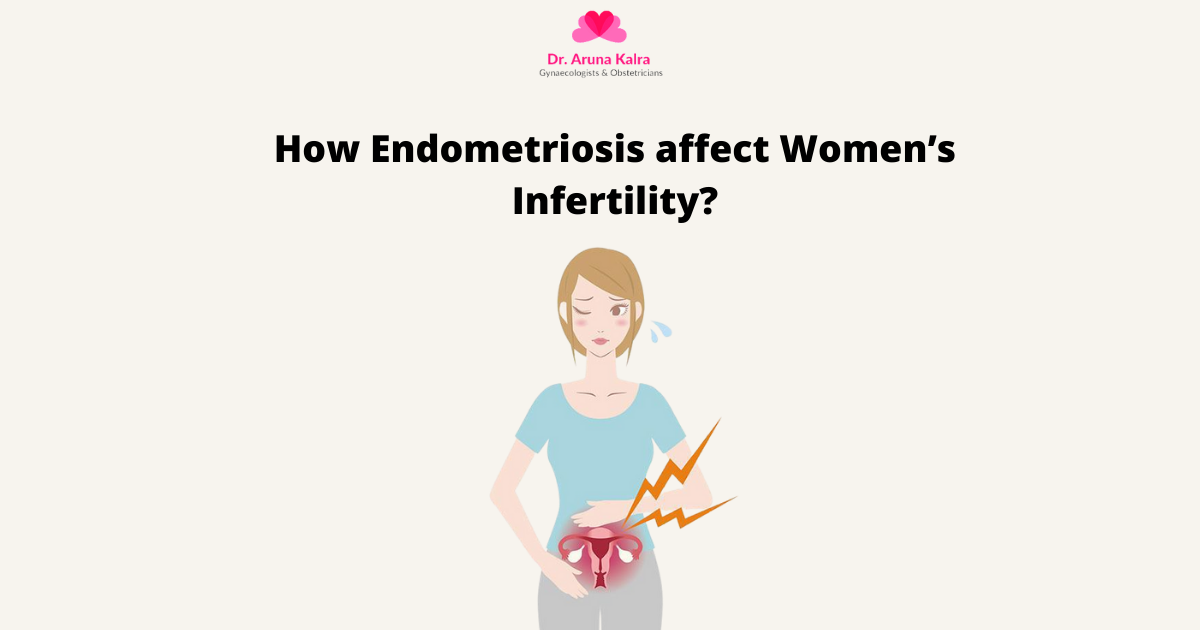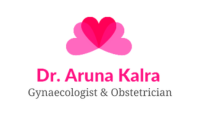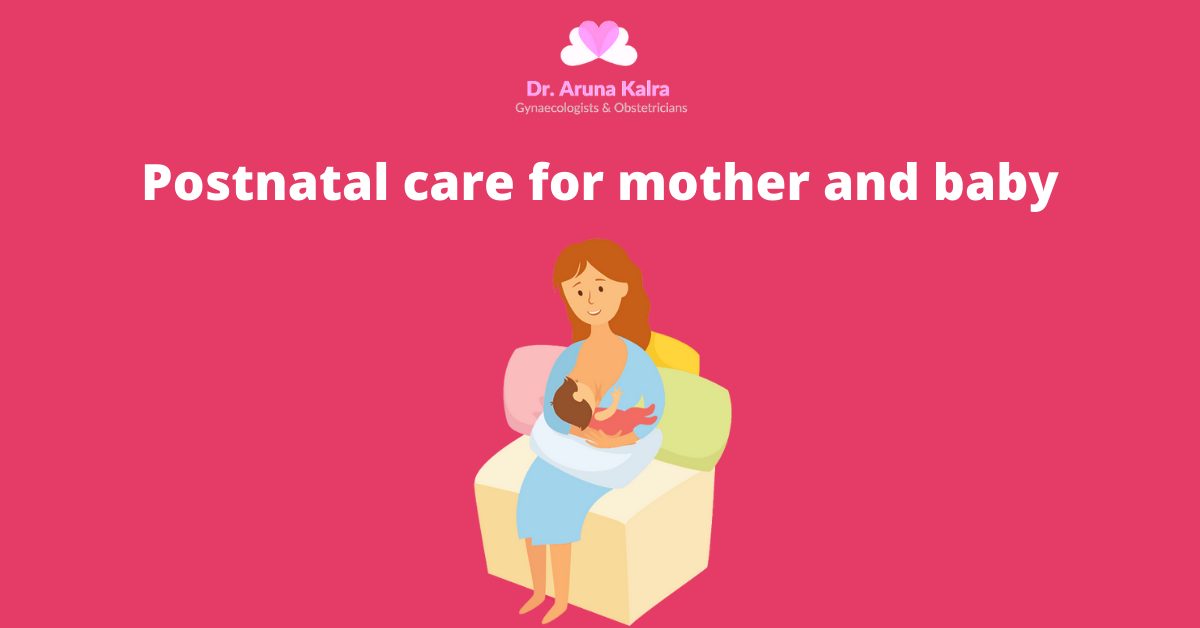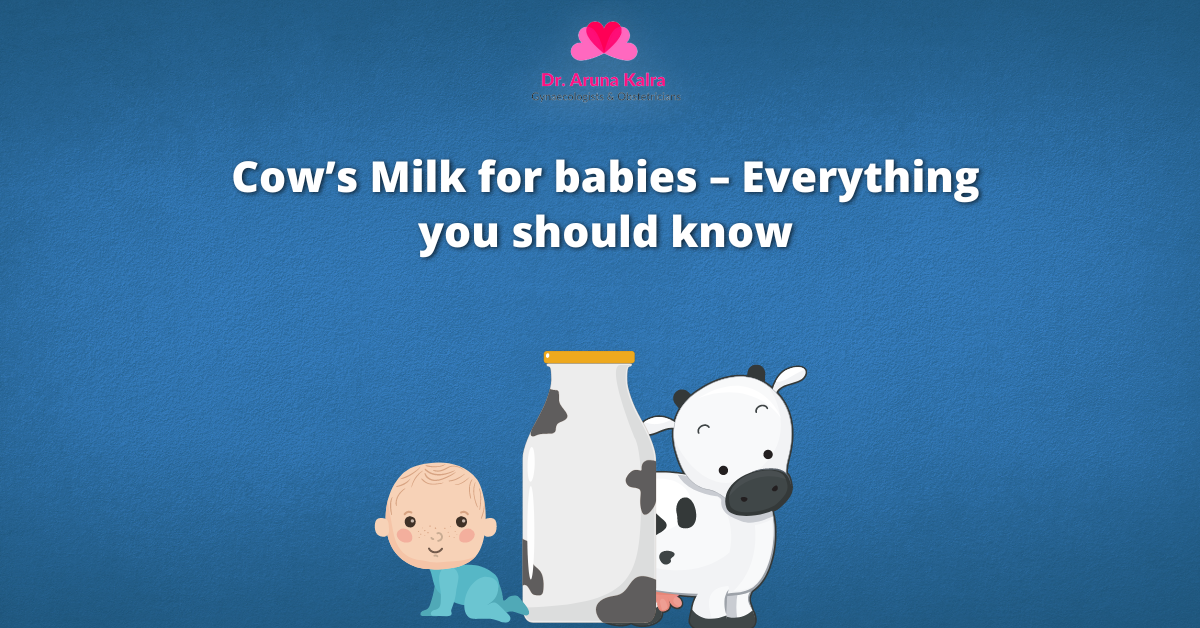
How Endometriosis affect Women’s Infertility?
What is Endometriosis?
Endometriosis is a gynaecological condition which occurs when endometrial implants, found in uterus, start growing in the other parts of the body. Endometrial implants comprise of endometrial tissues that grow outside the uterus. Endometrial tissues are build-ups of blood cells, gland and connective tissue. They normally grow in the uterus and helps in the lining of the womb for pregnancy. When they start growing in the locations outside the uterus, the condition is known as endometriosis. The endometrial implants usually grow in the pelvic area but they can grow anywhere in the body. Endometriosis can affect:
- The ovaries,
- The fallopian tubes,
- The peritoneum,
- The lymph nodes.
What are the symptoms of Endometriosis?
The symptoms of endometriosis include:
- Lower back and pelvic pain
- Periods lasting for more than a week
- Severe menstrual cramps,
- Heavy menstrual bleeding
- Bowel and urinary problems including pain, bloating, constipation and diarrhoea
- Bloody urine or stool
- Vomiting and nausea
- Pain during sex
- Fatigue
- Bleeding between periods
How Endometriosis affect Women’s Infertility?
Approximately one-third of the women suffering from endometriosis can face some difficulty in conceiving. However, there are many others too with mild endometriosis who do not face any issues with fertility. These issues are more likely to develop as a woman moves towards a severe endometriosis case.
For a woman to become pregnant, her ovary must release an egg and that must travel through the fallopian tube. The egg is then fertilised with a sperm and attached itself to the wall of the uterine to begin the development of the foetus. In Endometriosis, the fallopian tubes may be blocked or damaged which prevent the sperm and the egg to come together. In some cases, endometriosis can damage the egg in the ovaries that may lead to lowered ovarian reserve and even low egg quality and quantity.
Endometriosis influences infertility in many ways, some being:
- Inflammation of the pelvic structure
- Blocked fallopian tubes
- Adhesions
- Low immune system functioning
- Distorted anatomy of the pelvis
- Changes in the hormonal surrounding of the egg
- Low egg quality
- Impaired implantation of a pregnancy
The following options can reduce the symptoms of endometriosis and raise the chances of getting pregnant:
- Medications: These help in managing the painful symptoms. There are also hormonal medications that helps to slow down the growth of the endometrial tissue.
- Conservative surgery: A conservative surgery removes or destroy the n endometrial tissue growth without damaging any reproductive organ. A woman may go for this surgery if she is trying to conceive or experience severe pain.
- IVF: A couple can go for IVF if the woman is not able to conceive after the laparoscopic treatment. In IVF, the matured eggs of the female are removed and fused with a man’s sperm in a lab. After a few days, the fused eggs are implanted inside the mother’s uterus.
What’s good and what’s not good to eat in Endometriosis?
Diet plays an important role in managing the pain and effects of Endometriosis. Here are some Dietary tips:
- Omega-3 Fats Intake should be increased – They are healthy and have anti-inflammatory properties. They are found in fatty fish and other animal and plant sources.
- Trans Fats should be avoided – Trans fats increase the risk of endometriosis.
- Eat plenty of fruits, vegetables and Whole grains – They are rich in dietary fibre which can decrease estrogen in the body. The vitamins, minerals and antioxidants present in them may help fight pain.
- Avoid Caffeine and Alcohol – They may increase the risk of endometriosis. High caffeine intake is also linked to increase in estrogen levels in the body.
- Avoid Processed Foods – They are low in nutrients and fibre and they include unhealthy fat which causes inflammation and pain.
FAQs on Endometriosis and Infertility
Q 1. How does Endometriosis affect a woman?
A. In women with endometriosis, the endometrial tissue acts like a tissue in the uterus and responds to changes in hormones. It breaks down and bleeds like the lining of the uterus during the menstrual cycle and can even irritate the organs and other areas that it touches, causing pain. The irritation can cause adhesions (sticking together) or scar tissue on these organs. Adhesions can cause pain or bind organs together.
Q 2. Why does endometriosis cause pain in some women?
A. When a woman with endometriosis is on her period, she not only bleeds from the cells and tissue inside the uterus, but also from the cells and tissue outside the uterus. The endometriosis lesions cause inflammation and irritation, causing pain.
Q 3. Who is at risk?
A. Endometriosis is most common in women who are in their 30s and 40s, though it can occur any time in menstruating women. Endometriosis occurs more often in women who never had children. Women with a family history of endometriosis are more likely to have it.
Q 4. What is the cause of Endometriosis?
A. The cause of endometriosis is thought to be a small amount of blood and endometrium flows backwards through the fallopian tubes into the abdomen during the periods and attaches to other places and grows. Endometrial cells also may be carried through blood and lymph vessels.
Q 5. How does endometriosis affect fertility and the ability to get pregnant?
A. Almost 40% of women with infertility have endometriosis. Inflammation from endometriosis may negatively impact the function of the fallopian tubes, ovary, egg, or uterus. Also, a scar tissue, that is often present in patients with endometriosis, can cause blockage or damage to the fallopian tubes so they are unable to transport the egg after ovulation.
Q 6. Does a woman need to have a hysterectomy?
A. No, a hysterectomy is not necessary. However, if a woman with endometriosis does not want to conceive, she can consult a doctor and may decide to remove the uterus and possibly the ovaries, if other treatments are ineffective.
Q 7. Is endometriosis cancer?
A. No, endometriosis is not a type of cancer. Some research suggests that women with endometriosis may be at a slightly higher risk of developing certain cancers. Talk to your healthcare provider if you are concerned about the risk of a gynaecologic cancer.


